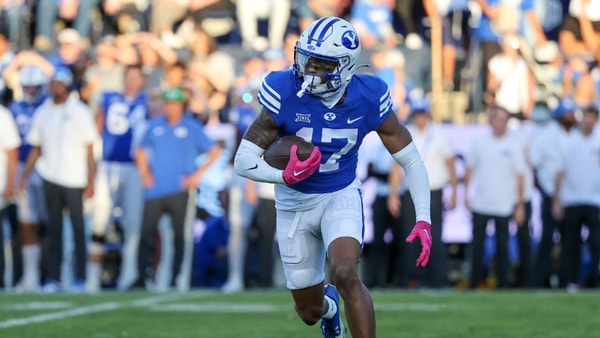Why Horse Racing is Dying in California and What It Means for Kentucky

In the 20th century, horse racing was “the sport of kings.” It was one of the three most popular sports in America, along with baseball and boxing. That’s far from the case a quarter of the way through the 21st century. Now its geographic footprint is in danger of drastically shrinking, threatening the future of the sport.
Prognosticators estimate the sport will not regularly operate in California and Florida within the next decade. The Los Angeles Times drafted a lengthy, detailed feature highlighting horse racing’s expiration date in California. If you care about horse racing, block of 15 minutes and read it now.
Even if you don’t care, California and Florida’s struggles matter to Kentucky. Think of horse racing as a stool. New York, Kentucky, Florida, and California are the four legs propping it up. What happens when two of those legs break?
Allow me to share a brief synopsis of the L.A. Times reporting, along with some personal anecdotal evidence.
[READ: Inside California Horse Racing’s Complex Problems That Could Hurt the Sport Nationwide]
1. There is No Monopoly on Sports Gambling
Do you know why horse racing was so popular for so long? The parimutuel windows were the only way you could legally make a sports wager. Admission to the track was $2 when I started attending Churchill Downs because they wanted you to save all of your money for gambling. Wagering still matters, but the Instagram experience has been priortized above all else.
Meanwhile, you can wager on an NBA player’s assists right from your phone, unless you’re in California. The state does not have sports gambling or historical horse racing slot machines to prop up the horse racing industry.
2. Horse Racing Often Doesn’t Financially Make Sense
A Maiden Special is your most basic, introductory type of race. These are horses all looking for their first win. A Maiden Special at Santa Anita Park in California has a purse of $60,000. At Churchill Downs, the purse is $120,000.
How can one expect horsemen to survive the California standard of living? The math isn’t mathing.
3. No Political Appetite for Horse Racing
Kentucky is able to race with larger purses because of the historical horse racing slot machines, sports gaming, and most importantly, the Kentucky Thoroughbred Development Fund (KTDF). Thanks to the efforts of politicians like Damon Thayer, legislation has been put in place to secure the sport’s financial future in Kentucky.
Top 10
- 1New
Shilo Sanders
Lands with NFL team
- 2
Picks by Conference
The final tally in NFL Draft
- 3Trending
Mel Kiper
Eviscerates NFL: 'Clueless'
- 4
D.J. Uiagalelei
Signs NFL free agent deal
- 5Hot
Quinn Ewers drafted
Texas QB off the board
Get the On3 Top 10 to your inbox every morning
By clicking "Subscribe to Newsletter", I agree to On3's Privacy Notice, Terms, and use of my personal information described therein.
Politicians in California only speak up about horse racing to highlight the sport’s darkest days. The rash of fatalities in 2019 called for investigations into the conditions of the track and practices used at Santa Anita Park. That turned public sentiment against horse racing in the state and it may never recover.
4. The Stronach Group
The Stronach Group operates under the title 1/ST. They own multiple racetracks, most notably Santa Anita Park and Gulfstream Park. They previously owned Pimlico, but turned that over to the state of Maryland last summer.
Gulfstream and Santa Anita are two of the five most important horse racing tracks in the country. The land they sit on is worth more than its horse racing enterprise. According to the LA Times, they’re shopping both tracks for sale. Belinda Stronach made that abundantly clear when she said during the Pegasus World Cup broadcast on NBC, “The fact is that Gulfstream Park is now in a very dense, urban setting, and that’s not great for horses, ultimately.”
Churchill Downs is in a pretty dense, urban setting, and the horses there seem to be doing just fine.
What Does This All Mean?
The horse racing industry is big business for the state of Kentucky. According to the Kentucky Thoroughbred Association, the equine industry generates roughly $6.5 billion in total economic impact, supports over 60,000 jobs, and brings in over $100 million in tax revenue for the state. Kentucky Derby week generates upwards of $217 million for the local economy.
That is not in danger of going away, however, if Florida and California get out of the business, we will feel it in Kentucky. If you care about the business, do yourself a favor and take some time to read the detailed feature from the L.A. Times.









Discuss This Article
Comments have moved.
Join the conversation and talk about this article and all things Kentucky Sports in the new KSR Message Board.
KSBoard